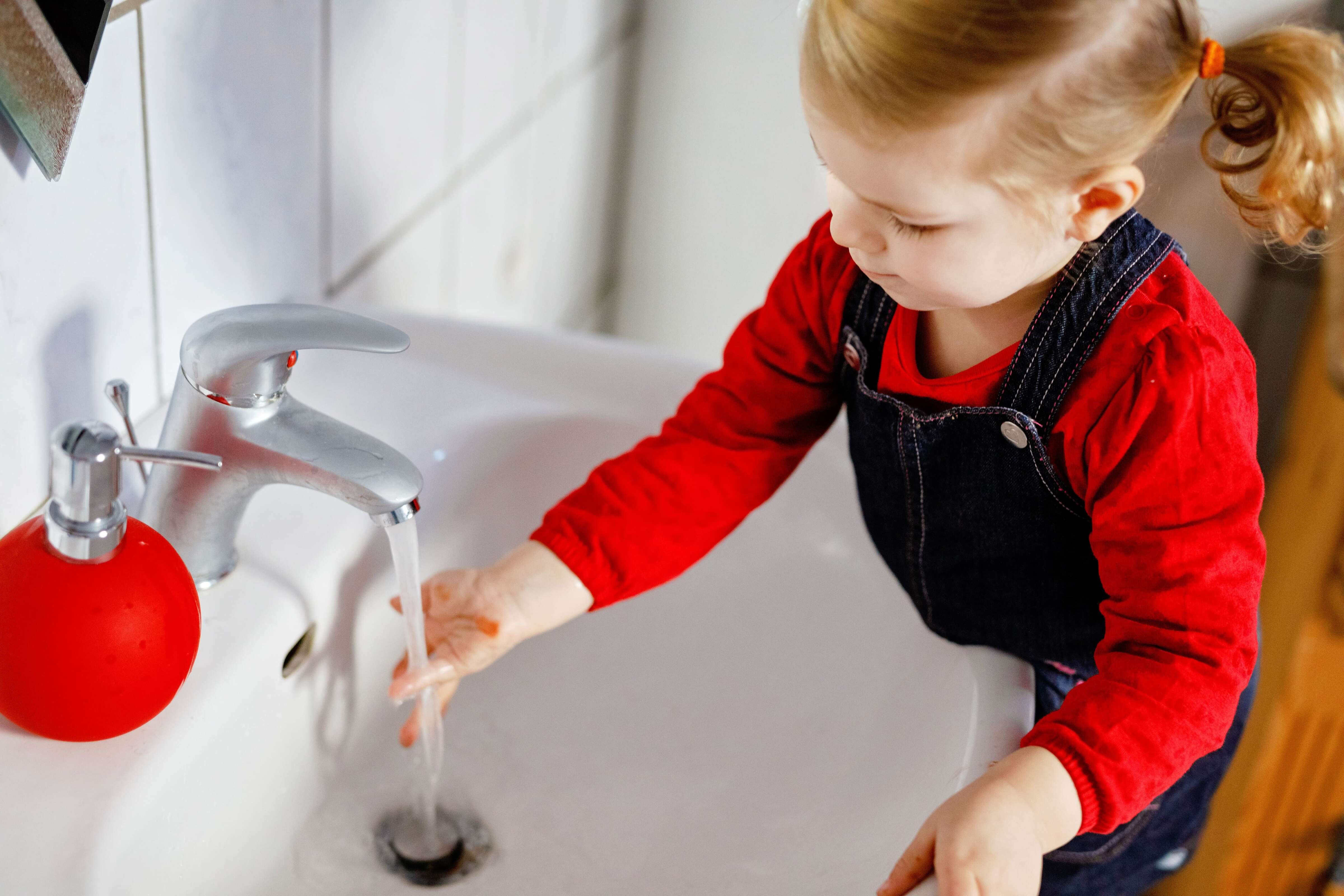Large (or XXL) families know it well: establishing a routine from a young age is essential. Why? Because a well-oiled organization makes daily life easier, brings serenity, and helps children gain independence. Here's why adopting a morning routine can transform your mornings into smoother, more peaceful moments.
We asked Delphine, a mother of four happy children, including twins, and a full-time retailer. Between her job and managing everyday life, she's had to implement well-honed strategies for stress-free mornings. Here, she shares her best tips to help the whole family start the day off on the right foot!
She uses the “ routine chart ,” often inspired by Montessori principles (which can be found in schools). It is a valuable tool for making each step of the day visual and playful, thus transforming daily tasks into a positive and engaging experience.
By using magnetic routine charts or printable weekly planners, you can create a predictable and reassuring environment for your child. These tools make it easy to visualize daily activities, such as waking up, brushing teeth, getting dressed, and eating breakfast, making them accessible and understandable for children.
This approach not only improves daily organization, but also strengthens your child's confidence and independence.
In this article, we'll explore why establishing a morning routine is important, how to implement it in a fun and educational way, and what examples of routines are suitable for different ages. We'll also provide tips for keeping your child engaged in their morning routine and discuss the benefits of a well-structured routine at home and at school.
Why is establishing a morning routine crucial?
The Benefits of a Regular Routine for Child Development
Establishing a morning routine is fundamental to a child's overall development for several key reasons. First, it provides a sense of security and confidence.
When children know what to expect each morning, they feel reassured and calm, which promotes emotional stability that is important for their well-being.
A structured morning routine also helps children develop independence and a sense of responsibility. By incorporating simple but meaningful tasks, such as brushing their teeth, getting dressed, or putting away their belongings, children learn to take responsibility and become more independent.
These daily habits strengthen his sense of independence and allow him to accomplish tasks without requiring constant supervision.
Additionally, a well-established morning routine makes it easier to manage time and organize the day. Children learn to respect schedules and manage their time effectively, which is essential for their cognitive development and their ability to plan and prioritize activities.
Morning routines that include social interaction, even simple moments like breakfast together, also contribute to the development of children's social skills. These shared moments foster communication, sharing, and conflict resolution—essential skills for building healthy relationships with peers.
Finally, a predictable morning routine reduces stress and anxiety related to the unexpected, allowing children to better manage the challenges of daily life. This emotional stability promotes healthy and fulfilling development, preparing children to become responsible and confident adults.
Delphine told us that with four children and only one bathroom, mornings can quickly become chaotic. At first, after breakfast, everyone would rush to brush their teeth at the same time, leading to arguments and traffic jams that were a real headache.
To make things run more smoothly, she set up a clear schedule: while two children wash and apply their lotion, the other two go to the bathroom to brush their teeth. Everyone knows exactly what they have to do. The result? Less stress, fewer arguments, more efficiency, and much more organized mornings!
How to establish a fun and educational morning routine for your child?
Establishing a fun and educational morning routine for your child requires a combination of structure, creativity, and flexibility. Here are some practical tips to make this ritual engaging and beneficial.
First, establish a consistent schedule. Set regular times for getting up, activities, and breakfast.
Delphine told us that she adapted the schedule to suit each of her children's routines. One of them wakes up earlier and has breakfast right away, while the others follow their own rhythm and organize themselves one after the other.
This approach allowed him to better understand that each child is different and that it is essential to adapt the routine to their natural rhythm for more peaceful mornings.
One of her daughters had a lot of trouble waking up in the morning, so Delphine added a short deep breathing session and some simple yoga stretches to her schedule.
These small habits allow for a gentle awakening, help stimulate the body and mind, and prevent abrupt or grumpy awakenings. By incorporating these moments of relaxation, her daughter begins the day more peaceful and more receptive to the next steps of her morning routine.
Another mom, Stephanie, a mother of two, told us that involving children in their routine makes all the difference. She recommends giving them some decision-making power, such as choosing how they prefer to be woken up—with an alarm clock or by a parent—or helping to prepare breakfast. Giving them the opportunity to choose their own clothes for the day also helps them feel more empowered and invested in their morning.
GRATIFICATION of autonomy!
She also relies on visual and interactive tools to guide her children through their routines. A magnetic routine chart or a customizable weekly planner with scratch-off labels turns each chore into a fun challenge.
Thanks to these supports, each step becomes clearer and more motivating, helping children to organize themselves better while gaining autonomy.
At first, it was difficult, she told us, and she had to set up “gratifications” or “rewards” at the end of the week.
The importance of breakfast
Make breakfast a quality family time. Turn off screens and encourage conversation by asking questions about the previous night's dreams or plans for the day ahead. This shared time strengthens family bonds and prepares children for the day ahead in a positive way.
Finally, be flexible and adapt the routine to your child's needs. Every child is unique, and it's important to personalize the routine based on their interests and developmental level.
Feel free to adjust as the child grows and develops.
Examples of morning routines suitable for different ages

Routine for toddlers (1-3 years)
For toddlers, the morning routine should be simple, predictable, and reassuring. Here are some key steps to incorporate:
- Wake up and cuddle : Start the day with a moment of tenderness, such as a hug or a morning kiss, to establish a positive connection.
- Breakfast : A light, nutritious meal, such as milk or cereal, is essential for their morning energy.
- Basic hygiene : Simple actions like washing hands and face, and changing diapers (if necessary), should be included.
- Dressing : Help the child dress, encouraging their participation as much as possible.
- Quiet Playtime : Before going outside or starting the day's activities, a short period of quiet play, such as reading a book or singing a song, can help regulate their energy.
Routine for preschoolers (3-5 years)
For preschoolers, the morning routine may be slightly more structured and include more varied tasks:
- Wake-up and preparation : Use an alarm clock or a buzzer to indicate when it's time to get up. Encourage the child to wash, brush their teeth, and dress in clothes prepared the night before.
- Breakfast : A balanced and interactive meal, where the child can help prepare or serve, reinforces social skills and responsibility.
- Tidying up and organizing : Encourage your child to put away their pajamas and make their bed, which helps develop independence and organizational skills.
- Getting ready to go out : Putting on shoes, a coat and picking up a school bag are important steps to include in the routine, making them visual and fun with a routine chart.
Routine for school-age children (6 years and older)
For school-aged children, the morning routine should be more detailed and take into account academic requirements:
- Wake-up and personal preparation : Establish a specific wake-up schedule, with enough time to bathe, brush your teeth, and get dressed. Use a routine chart to visualize each step.
- Breakfast and Packing : Make sure the child eats a nutritious breakfast and packs their school bag, including homework and materials needed for the day.
- Free time before leaving : Allow a short period of free time, 5 to 10 minutes, for the child to relax or do a quiet activity before leaving for school.
- Organized departure : Make sure everything is ready and in place before leaving the house, including steps like putting on shoes and coat, and grabbing your school bag
Tips for keeping your child engaged in their morning routine
Combining pleasure and care: the Doucéa approach
To keep your child engaged in their morning routine, it's essential to make daily activities as fun as possible. The Doucéa approach, which aims to make personal care enjoyable, can be particularly effective. Our personalized cream boxes transform the skincare routine into an interactive and entertaining experience.
Marc, a single dad to a young boy, shared his secret with us. "My 11-year-old son can't stand water on his face, yet he sweats a lot at night and his face gets a little oily. I found what I was looking for in Doucea's treatment water... A simple treatment: treatment water and soft cotton pads."
He adds: "My son loves it, it smells good and it's very effective."
Adapt the routine to the seasons and the child's specific needs
Routines should be flexible and take into account climatic variations as well as changes in the child's needs.
For example, in winter, you should emphasize hydration, while in summer, you should emphasize sun protection. Similarly, if your child has specific needs, such as allergies or medical conditions, the routine should be adjusted accordingly.
Stéphanie told us that she invested in several refillable boxes: one in the bathroom, one in the bedroom, and another near the entrance where she leaves her keys. This way, there's no excuse not to apply their cream. Just walk by, don't forget! She admits that before, her children "were too lazy" to go back up to their rooms, but with these strategically placed boxes, it's become a habit.
Stéphanie uses Apaisea cream , moisturizing and soothing, for "calm" periods, and Doutopia cream , specially adapted for "critical" periods such as winter or seasonal changes when the skin becomes more red and irritated. She told us: "This box concept is simply brilliant! I only buy the refill. As soon as I see redness appear, I change the cream." This practical system allows her to quickly adapt to the needs of her children's skin.
The benefits of a well-structured routine at school and at home
How a good routine influences academic performance and well-being
A well-structured routine has a significant impact on a child's academic performance and well-being. By establishing consistent morning routines, children develop better concentration and organizational skills, which translates into better academic performance. Furthermore, a stable routine helps reduce stress and anxiety levels, creating an environment conducive to learning and personal growth.
The Role of Parents in Establishing Morning Routines
Parents play a key role in establishing and maintaining effective morning routines. It's essential to agree on a routine with your partner to ensure consistency and consistency in expectations and requirements.
Presenting the routine to your child clearly and explaining the reasons behind each step can strengthen their engagement and understanding. Parents should also serve as role models by following similar routines themselves. For example, showing your child that you also follow certain rituals, such as tidying up the kitchen while your child puts away their toys, reinforces the importance of these habits and encourages your child to adopt them.
Additionally, involving children in the process of creating the routine can increase their sense of control and participation. Asking children to suggest certain steps or decide the order of activities can make the routine more engaging and meaningful for them.
Finally, flexibility is key. Parents should be willing to adjust the routine based on their child's needs and development, while remaining consistent and patient. Using visual cues, such as charts or checklists, can help children remember steps and follow the routine independently.
So don't delay implementing this routine, as it will transform your mornings into moments of calm and independent learning. Take the time to plan and adapt, and you'll quickly see the benefits for your child's well-being and development.
















